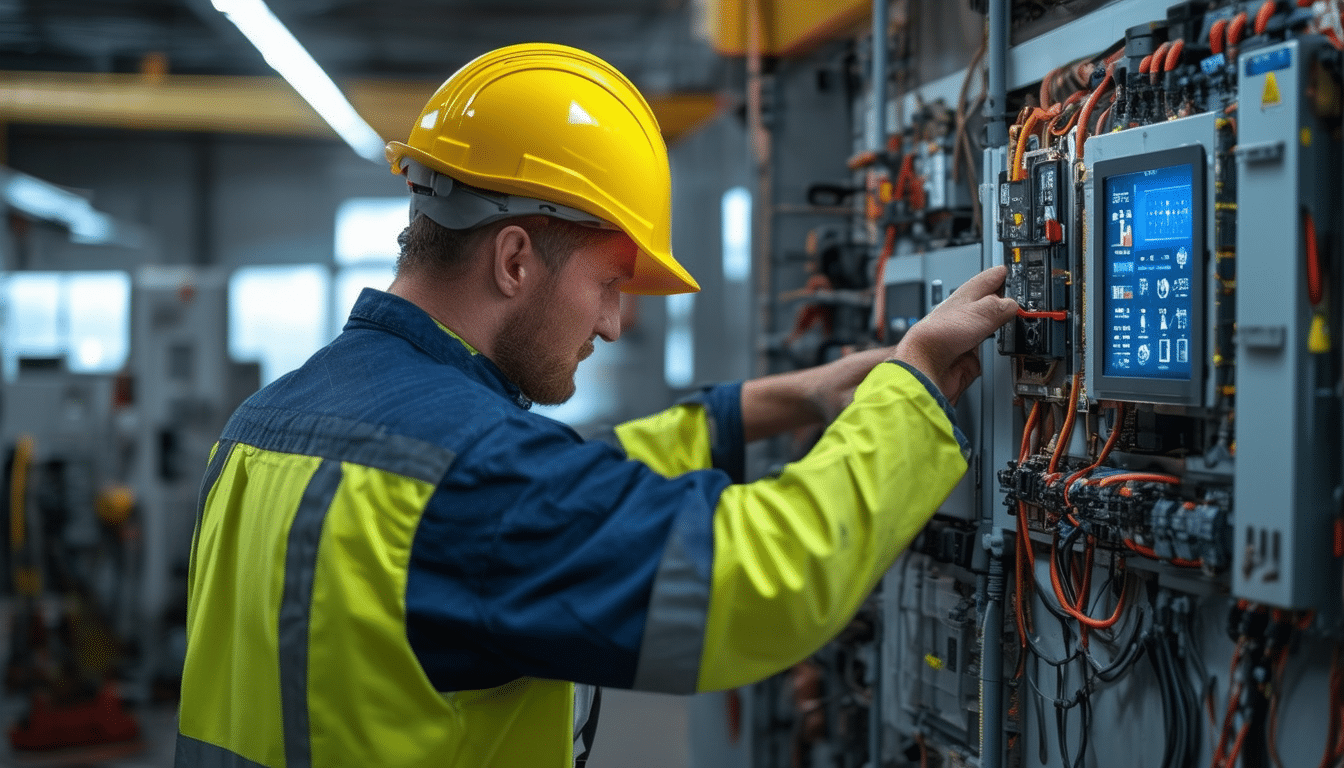Why the maintenance of electrical systems is vital for fuel economy

The maintenance of electrical systems plays a crucial role in the energy efficiency of vehicles and machinery, which directly translates into a reduction in fuel consumption. Optimizing the performance of these systems not only ensures their reliability and safety but also decreases the risk of failures that can significantly increase operating costs. Additionally, keeping electrical components in good condition helps extend the equipment’s lifespan, thus promoting a more sustainable and responsible economy in resource use. In a context where the pressure to reduce the carbon footprint and spending on fossil fuels is increasing, proper maintenance emerges as an essential strategy.
Proper maintenance of electrical systems is crucial for optimizing fuel consumption in vehicles. Regular and proactive attention not only ensures the safety and efficiency of the system but also provides numerous economic benefits by reducing fuel expenses. This article explores the importance of electrical maintenance, the consequences of its absence, and how proper practices can lead to significant savings in fuel use.
The Importance of Electrical Maintenance
Electrical system maintenance refers to the necessary activities to ensure that all components of a vehicle function correctly. This includes both the inspection and replacement of parts that directly affect performance. Without proper maintenance, the risk of failures increases, which can result in higher fuel consumption and, consequently, greater expenses.
Increased Energy Efficiency
Regular and effective maintenance improves the energy efficiency of electrical systems. By keeping electrical components in good shape, a more consistent energy supply to the parts that need it, such as the engine and transmission systems, is ensured. This leads to smoother and more efficient operation, which is key to reducing fuel consumption.
Prevention of Major Problems
A preventive maintenance practice can help identify problems before they become costly failures. For example, battery wear or a short circuit can lead to increased energy consumption, which raises fuel expenses. By detecting these issues in time, repairs and adjustments can be implemented to prevent further deterioration of the system.
Reduced Operating Costs
The maintenance of electrical systems not only affects the vehicle’s performance but also significantly impacts operating costs. Optimizing the electrical system contributes to a more efficient use of fuel, meaning that vehicle owners can expect considerable savings in their fuel costs over time.
Examples of Tangible Savings
Recent studies have shown that a well-maintained vehicle can save up to 20% in fuel consumption compared to one that is not subjected to regular maintenance. This is due to the reduction of additional work that the engine has to perform to compensate for any failures in the electrical systems, which often leads to additional fuel expenditure.
The Relationship Between Maintenance and Sustainability
Sustainability is an aspect that goes hand in hand with the maintenance of electrical systems. Keeping these systems in optimal condition contributes to lower environmental pollution and a reduction of the carbon footprint, while also saving fuel. Adopting sustainable practices is not only good for the planet but also for the economy of each user.
Implementing Sustainable Practices
Incorporating proactive maintenance practices, such as regular inspections of electrical components and training in efficient driving techniques, can lead to significant reductions in fuel consumption. This not only benefits the user’s wallet but also helps preserve the environment, aligning with the growing concern about climate change.
Tips for Efficient Maintenance
To maximize the benefits of electrical maintenance, it is crucial to follow some recommendations. Keeping tires properly inflated, checking charging systems, and ensuring there are no loose connections are some of the aspects to consider. Using digital resources, such as consumption tracking apps, can also be helpful in identifying usage patterns and areas for improvement in maintenance.
In conclusion, maintaining electrical systems is vital not only for safety and efficiency reasons but also for its direct impact on fuel economy. Implementing a proactive maintenance approach can lead to significant savings and contribute to more sustainable driving.
The Importance of Electrical System Maintenance for Fuel Economy
The maintenance of electrical systems is an essential aspect that vehicle owners must consider to maximize fuel consumption efficiency. By keeping the electrical components of a vehicle in optimal condition, the proper functioning of the systems that regulate energy use is ensured, which can directly affect the amount of fuel consumed.
One of the main advantages of good electrical maintenance is the elimination of problems that, although they may seem minor, can cause a substantial increase in fuel consumption. For example, if the charging system has failures, the vehicle’s battery may not supply the appropriate energy to the engine, which would force it to work harder and, in turn, consume more fuel. Therefore, preventing these inconveniences through periodic inspections translates into more efficient resource use.
Moreover, proper maintenance encourages the durability of electrical components. Extending the lifespan of these elements not only avoids excessive repair costs but also contributes to less waste production, which is a step towards sustainability. In an era when environmental concerns are increasingly relevant, reducing waste is essential for preserving the planet.
In summary, prioritizing the maintenance of electrical systems not only optimizes fuel spending but also promotes responsible and sustainable practices. Implementing a maintenance routine can be the key that vehicle owners need to reduce costs and contribute to a more efficient and environmentally conscious economy.




